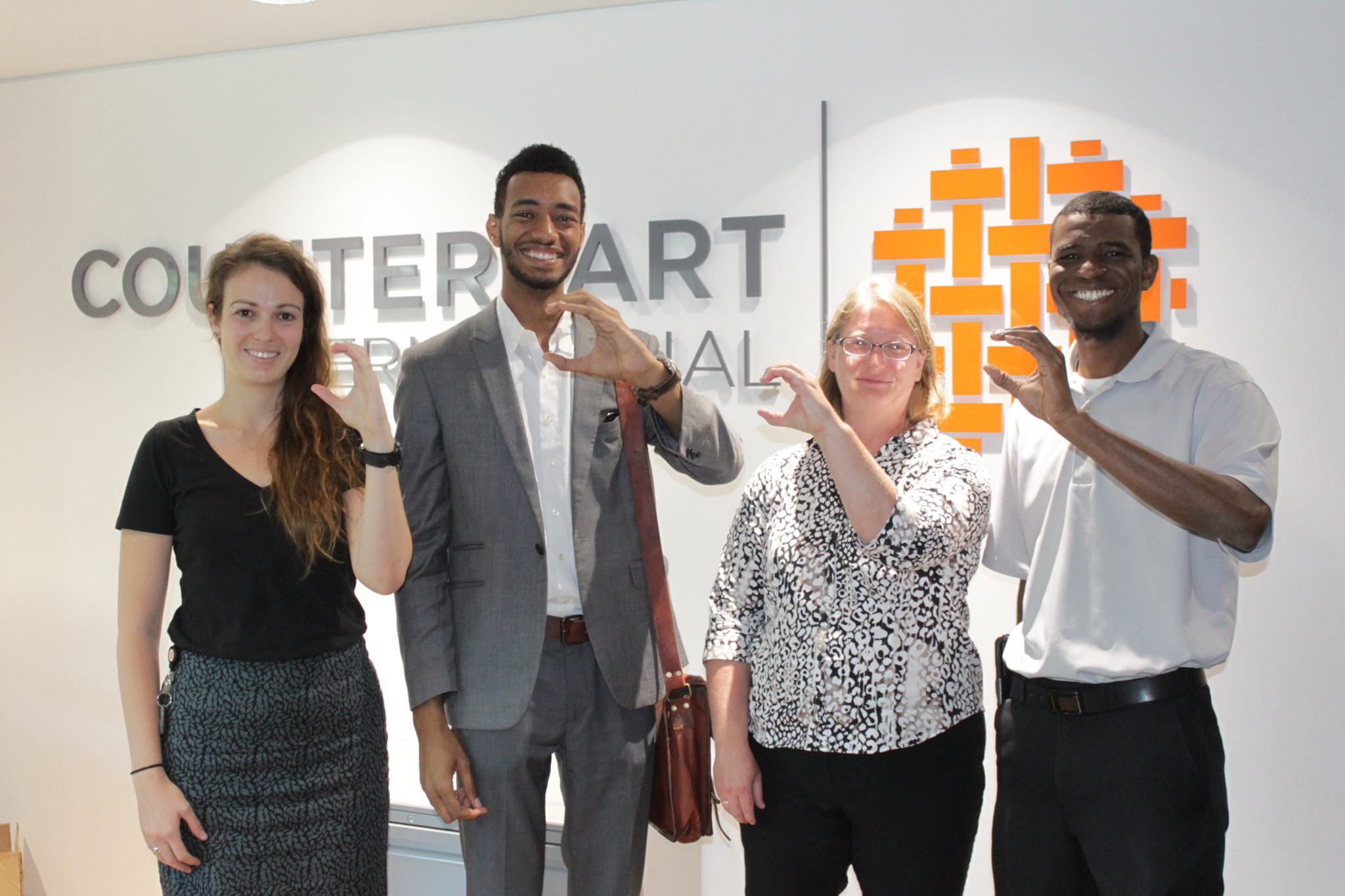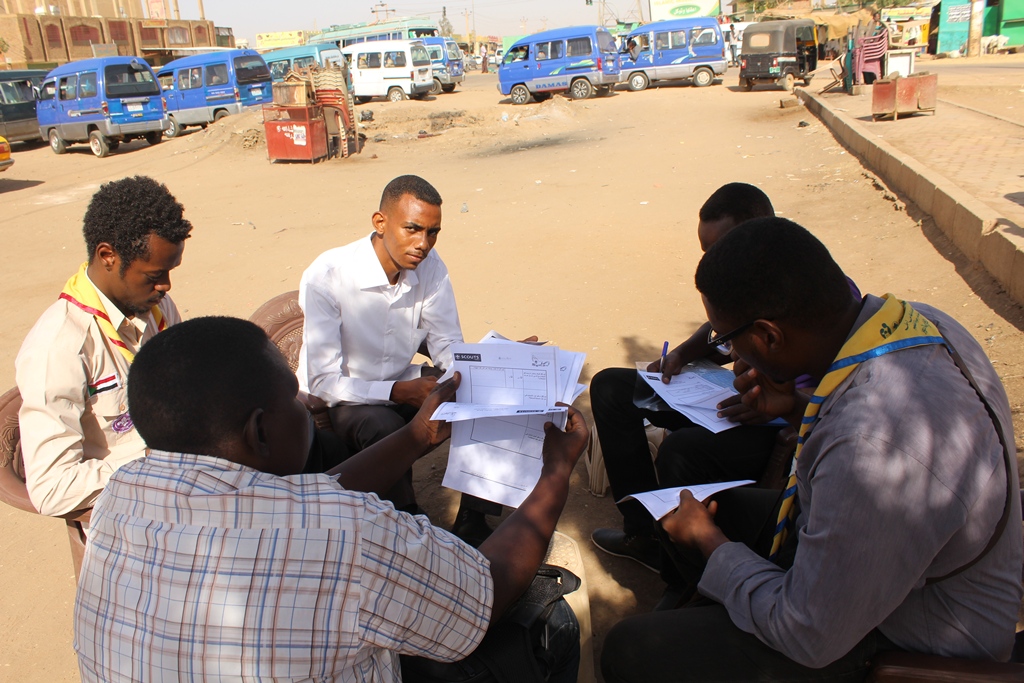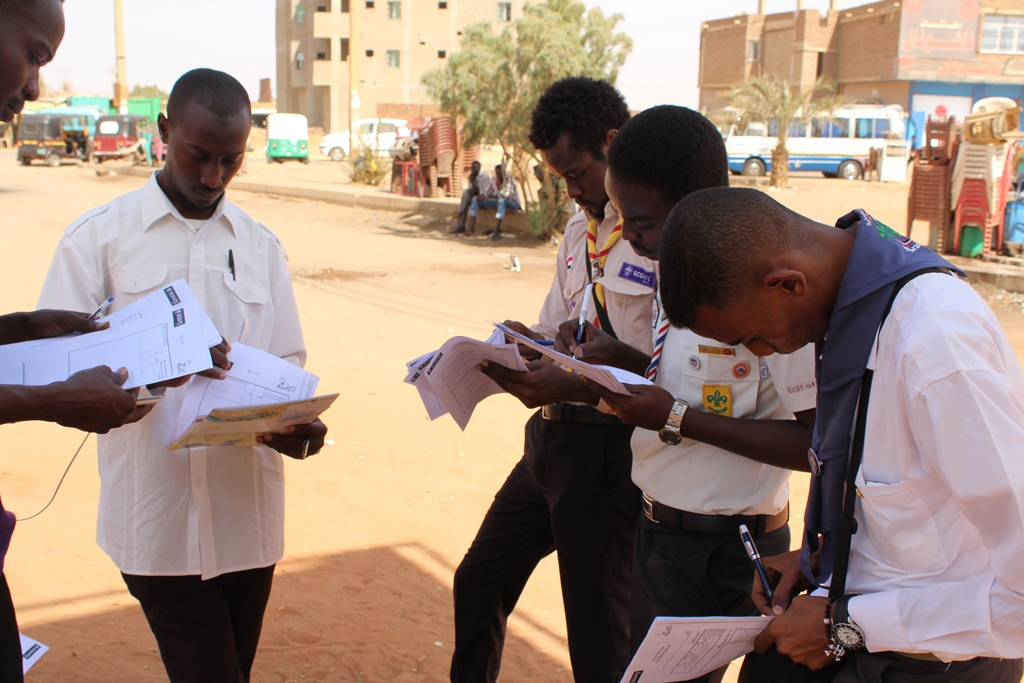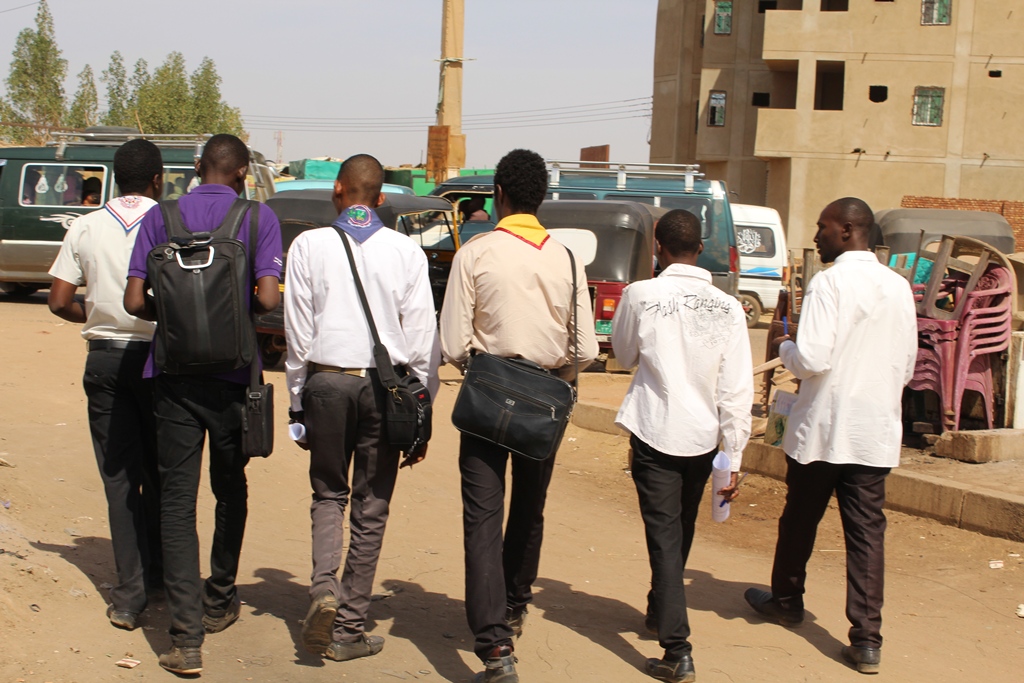
The backwards C has become the symbol of Counterpart’s office in Khartoum. So, when Ahmed visted (second from left), we had to do it with him, here in Virginia.
Nimir means tiger in Arabic. A befitting last name for Ahmed, a young man from the heart of Khartoum who is determined, thoughtful and full of sharp insights. At only 25, he speaks of his country with the dedication of a man twice his age. Visiting DC as a 2016 YALI Presidential Fellow, we spoke about his life, accomplishments, and ambitions and his work with Counterpart’s Civil Society Development Program (CSDP). Throughout our conversations, he held his phone close. On the other end: his friends, his work, his hopes – Sudan.
We spoke about his work with the Sudan Scout Association – a local Counterpart partner. The Sudan Scout Association is addressing a serious challenge facing area residents. The bustling East Nile Locality of Khartoum, a hub of activity, is well known in Sudan for its clutter of taxis and buses, the raging horns of tut-tuts, and the hurried pedestrians that are all rushing on their way in and out the region. With only two bridges for nearly two million people, traffic jams build quickly as taxi drivers and pedestrians stop along the bridges to find one another. Although some may have realized these dangerous and illegal roadside stops were an issue, no one knew just how serious this had become to the community.
That is, until Ahmed and his Sudan Scout Association asked.
The Sudan Scout Association received a small grant from Counterpart International in 2016 to find out what is happening in their community.
Using the community asset approach, focus groups were organized; they learned that in spite of the many challenges the community faces, they all agreed on one thing: something must change with the bridges.
“We invited vendors, traffic police, activists, tut-tut drivers, bus drivers, local officials and activists to be in the focus groups. Because we need to understand each of their needs,” explains Ahmed.
He also engaged in an open dialogue with local government officials to present the assessment findings. He says the meeting with the local government was important because there’s too much of a gap between government and citizens. But this isn’t an issue for him, because, “the Scouts don’t accept failure.”
And they have already been putting that philosophy into action….
Their plan is two-fold. They will continue working with the people, from tut-tut and bus drivers, to street vendors and local residents. He stressed the need to educate East Nile residents and visitors about the dangers of stopping on the road.
“People know the Sudan Scout Association. We have been in Sudan for over 50 years. They trust us. They know that we only want good for the community,” he explains. “So we know how to speak with the people, how to work with the people. We are hoping that this means they are more willing to work with us.” For the second part of their plan, he will need to use his leadership skills and knowledge of how things work in Sudan….
According to Ahmed, “the second part of our plan is to work with the local police and mayor. We need them to enforce the law in the East Nile Locality. Stopping alongside the road is illegal. Everyone knows this. We have to make applying the law more important than what is convenient.”
He credits his leadership training from Counterpart International, through a series of workshops and mentoring by Counterpart staff, with teaching him how to work more effectively across all sectors. “Before this, I didn’t know how to interact with other organizations, or how to communicate with them. Ali and Samah (Counterpart’s Chief of Party and Manager of Civil Society & Youth Serving Organizations) have been incredibly supportive, teaching us, showing us the way ,” he states, “Without their help, we could not have accomplished what we have already done.”
And some important people are beginning to notice…
Ahmed has built a relationship with Abdullah Jaylee, the mayor of the East Nile Locality. He presented the results of the focus groups directly to the mayor, which showed the need for change. He was able to share the voices of the people who live and work in the East Nile Locality, which had an impact.
After reviewing their evidence, Mayor Jaylee was more than willing to give his approval to the two-part plan. Ahmed explained, “We need people and government to participate because we want to launch fruitful dialogue between the government and the citizens. We want this to be a model project that raises awareness and reflects on other places. We want to show that by working together we can make changes that make a difference.”
Through the end of September, the Scouts will be engaged in a media campaign through the small grant from Counterpart to educate area residents about local law and how to engage in safe driving and pedestrian practices at the bridges.
Ahmed says he looks forward to leading more effective change in Khartoum. Although he realizes change takes time and doesn’t happen overnight, it is all part of his vision for a better Sudan. True to Counterpart’s vision, this brave, young, tiger of a man is committed to his community and dedicated to using the skills to see his community thrive.





